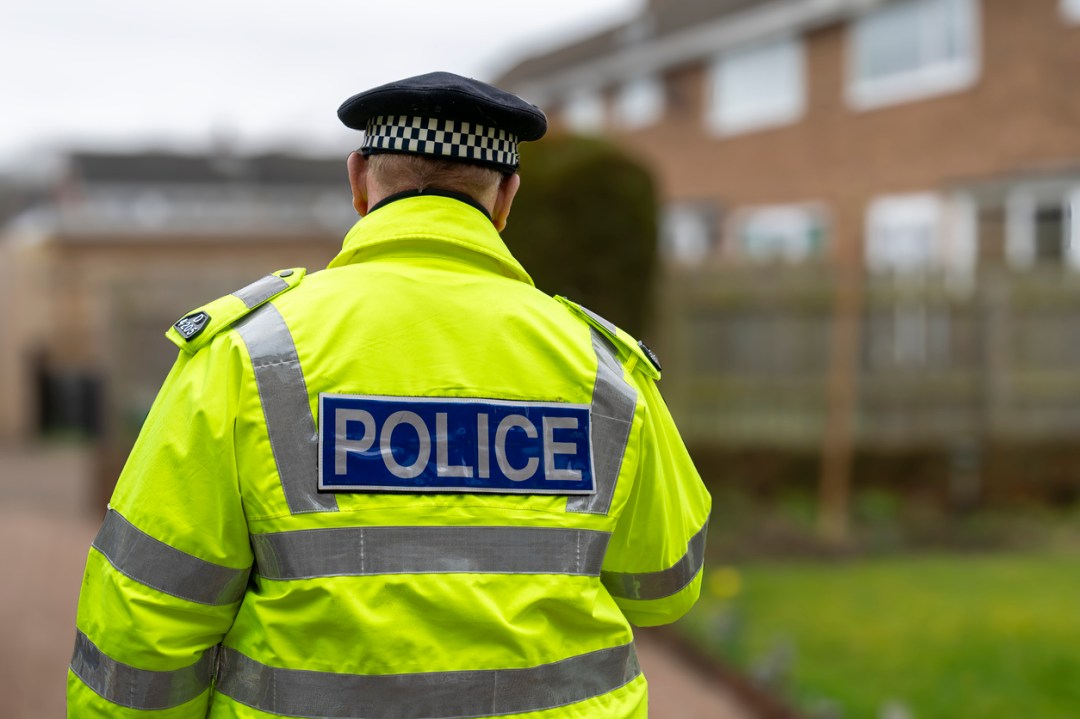Are you angry about bin collections? Potty about potholes? Incandescent about the behaviour of your local council or councillors? Well whatever you do, don’t post disparaging things about them on the internet. Unless you want a visit from the police, that is.
Yes, saying critical things about your elected local representatives is the latest thing that can get you in trouble with Britain’s speech police, if the experience of Helen Jones in Stockport is anything to go by. She was paid a visit by Greater Manchester Police last week, after she called on a local councillor to resign.
The local councillor is Labour’s David Sedgwick, who has been implicated in the infamous ‘Trigger Me Timbers’ scandal – the WhatsApp group in which now-ousted health minister Andrew Gwynne and other Labourites in Greater Manchester shared off-colour jokes, many of them about their constituents.
On Facebook, Jones posted: ‘Let’s hope [Sedgwick] does the decent thing and resigns. I somehow think his ego won’t allow it.’ For this and other comments, she was reported to the police for harassment and got a knock at the door from two of Manchester’s finest.
Can the police be charged with wasting their own time? If so, those officers should be written up pronto. They conceded Jones had committed no crime, but wanted to ‘advise’ her about the complaint anyway. Why they didn’t just dismiss the complaint – which Jones believes came from Sedgwick himself – out of hand is anyone’s guess.
I know we have become accustomed to the police showing up at someone’s home because they have posted something somewhere that someone else found offensive. But we really shouldn’t. From the thousands of arrests each year over ‘grossly offensive’ tweets to the Orwellian harvesting of ‘non-crime hate incidents’, the police are fast becoming the armed wing of offence culture.
Just because no further action was taken with Jones, that doesn’t mean cases like hers aren’t a problem for freedom of speech. If ordinary people fear a police officer showing up if they speak their minds online, this is bound to intimidate some of them into silence.
What’s more, this credulous pursuit of vexatious complaints effectively turns the police into the personal goon squad of the easily offended – whether they are a trans activist, furious about being accurately gendered, or a local politician who doesn’t like to be criticised.
Indeed, cases like this are a reminder that, where Britain’s literal PC police are concerned, our censorious laws are only half the problem. From those Merseyside coppers who drove around with a billboard declaring ‘Being offensive is an offence’ to the Glasgow police social-media team who tweeted ‘Think before you post or you may receive a visit from us this weekend’, many police forces have been willing participants in their collective rebrand as a Poundshop Stasi – often going above and beyond what the law actually says or requires of them.
Far be it from me to tell the police how to do their jobs. But how about they… do their jobs? You know, enforce the law, chase down criminals, attend the occasional burglary. All this speech policing makes them look sinister and ridiculous in equal measure.









Comments